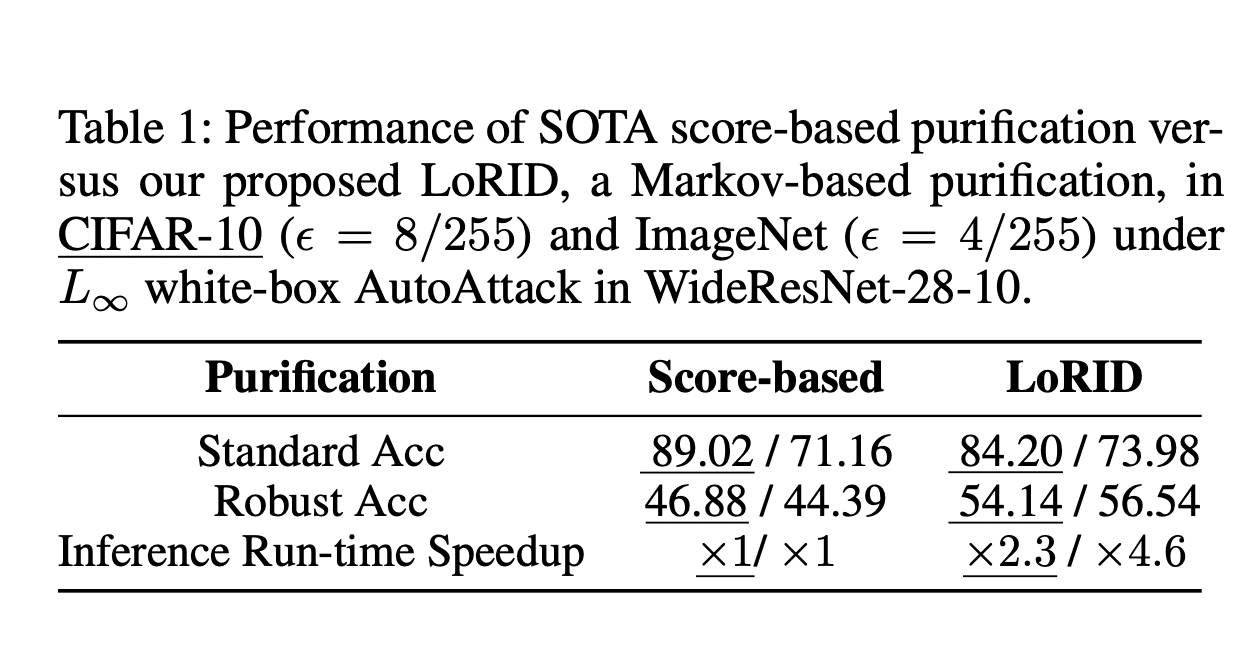
Practical Solutions and Value of LoRID: A Breakthrough in Adversarial Defense
Enhancing Neural Network Security
Neural networks face vulnerabilities to adversarial attacks, impacting reliability. Diffusion-based purifications, like LoRID, offer robust protection.
Effective Defense Methods
LoRID employs Low-Rank Iterative Diffusion to remove adversarial perturbations with low errors. It integrates multiple rounds of diffusion-denoising loops and Tucker decomposition for enhanced defense.
Evaluation and Performance
LoRID’s performance surpasses state-of-the-art methods across CIFAR-10/100, CelebA-HQ, and ImageNet datasets. It significantly enhances robust accuracy against various attack scenarios, showcasing its effectiveness.
Advantages of LoRID
LoRID outperforms existing defense models, enhancing standard and robust accuracy in black-box and white-box settings. Its effectiveness against adversarial attacks is validated through theoretical analysis and experimental evaluations.
Integration of Tucker Decomposition
By integrating Tucker decomposition, LoRID effectively handles high noise regimes, providing advanced defense capabilities against complex attack strategies.
A Path to Enhanced AI Security
LoRID represents a promising advancement in neural network defense, offering enhanced protection against adversarial attacks. Its innovative approach and robust performance make it a valuable tool in securing machine learning models.



























